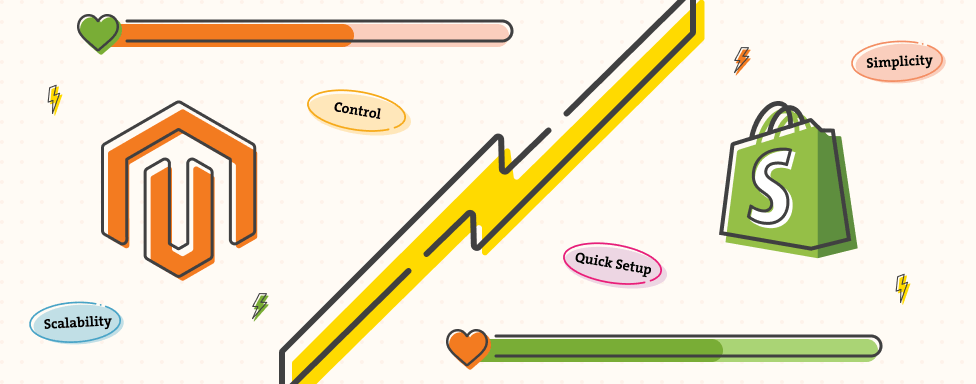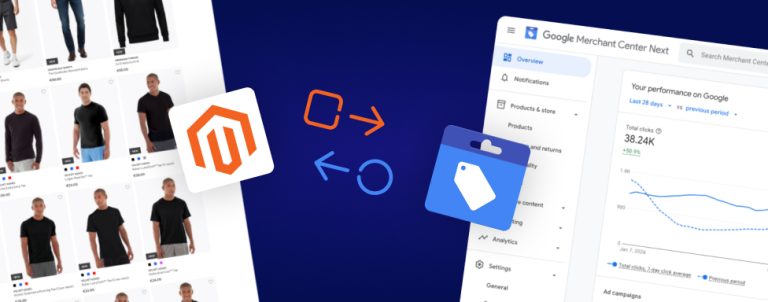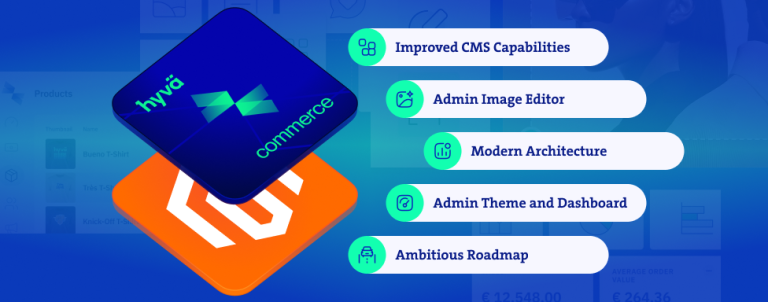Business owners are constantly exposed to decision-making. However, few carry as much weight as choosing the right eCommerce platform for your online store. Making the right decision requires one crucial thing—knowing what your business needs from the platform.
While you (obviously) know a lot about your business, understanding the technical aspects and requirements is completely different. With these in hand, we’ll move forward to a detailed comparison of Magento and Shopify, helping you discover which platform best aligns with your business goals and technical needs.
Finding the Perfect Technical Fit
On the one hand, we have the glorious Shopify, the most popular eCommerce platform in the world, with over 4.7 million stores worldwide. On the other hand, Magento, a highly customizable platform capable of handling complex, large-scale eCommerce operations. Both offer great but very different possibilities for online stores. Let’s dive deeper.

Shopify
Shopify is a SaaS (Software as a Service) platform. In the context of eCommerce, a SaaS platform is a cloud-based solution where the provider hosts and maintains the software, servers, and infrastructure. Shopify, as well as other SaaS platforms, charges a monthly fee for platform use and offers different plan options to meet the needs of different business sizes.
The basic plan is suitable for solo entrepreneurs, the Shopify plan is intended for small businesses with fairly straightforward needs, the Advanced plan offers increased customization options and more support, and the Plus plan is designed to power large businesses. Additional costs include transaction fees (unless you use Shopify Payments), premium themes, and third-party apps. However, in general, the costs of this solution can be very predictable.
As mentioned before, Shopify is highly scalable, making it suitable for businesses of all sizes. Whether you’re just starting or running a large enterprise, Shopify can handle your needs. However, as you scale, costs can increase due to higher-tier plans and app fees. This means that replatforming might become the logical solution at some point.
Shopify also provides a wide range of themes and apps that allow for customization, but these are typically limited to the options provided by the platform. Advanced customization is possible through Shopify’s Liquid templating language, though it is not as flexible as with open-source platforms. As long as your needs don’t require highly customizable solutions, Shopify can make a solid solution for your business needs.
Shopify provides hosting and 24/7 customer support via phone, email, and live chat. The platform also has an extensive knowledge base and community forums. This makes it easy to get help whenever you need it. Regarding SEO and marketing, Shopify comes with built-in SEO features and marketing tools, such as customizable meta tags, automatic sitemaps, and easy integration with social media platforms. Although these are all great, you have to remember that the same SEO setup you have is given to all of the other 4.7 million users (even though some may not use it at all), and the chances to stand out by doing something different in that segment is very tight.
Magento
Magento is an open-source and self-hosted eCommerce platform, meaning it’s software you download, install, and maintain on your own server or hosting environment. The business owner (or partnering development agency) is responsible for managing everything from software installation to security, updates, and performance optimization.
Regarding your options when it comes to Magento, it comes down to Magento Open Source and Magento Commerce. While Magento Open Source is free to download, Magento Commerce (now Adobe Commerce) offers additional enterprise features, though it comes with a high price tag, starting in the tens of thousands annually. In general, the costs associated with using Magento can vary widely depending on several factors, including the version of Magento you choose, your hosting needs, the level of customization, and ongoing maintenance. Depending on the complexity of your store, development costs can range from $50 to $200 per hour. A basic setup might cost a few thousand dollars, while highly customized stores can run into the tens or even hundreds of thousands of dollars.
Regarding Magento Open Source, support is typically community-based, and you will need to hire internal or external developers or an agency for ongoing support. With Adobe Commerce, support is included, but you might still incur additional costs for specialized support or, at least, consulting.
Like Shopify, Magento’s marketplace offers a wide range of paid extensions and themes, and prices vary depending on complexity and customization. These extensions further enhance the platform’s flexibility, allowing you to add features and integrations as needed. No matter the growth your business reaches, Magento can support your needs along the way, but at a price. This is one of the main reasons Magento isn’t the right solution for every merchant.
Why Merchants Prefer Magento
Magento shines in customization. It is an open-source platform, meaning you have full access to the code and can modify every aspect of your store. This allows for deep customization of the storefront, backend processes, and integrations. For businesses with unique requirements, this level of control is essential. You can implement custom workflows, product pages, and checkout processes to suit your business model. Its architecture is built to support high traffic volumes and large-scale operations. Enterprises or rapidly growing businesses that require a platform capable of scaling with their growth might prefer Magento for its robust infrastructure. It’s particularly strong in the B2B eCommerce space, offering features like custom pricing, bulk ordering, quote management, and complex product catalogs tailored for B2B customers.

Magento is known for its superior SEO capabilities, making it a favorite among SEO professionals. It offers advanced features like custom URLs, metadata, sitemaps, and more. It also supports a range of marketing tools, though these may require more configuration. Magento is built to support large and complex product catalogs, making it ideal for businesses with a wide range of products or those expecting significant growth. It can be optimized for high performance, capable of handling high traffic volumes and large transaction loads.
Magento also allows you to manage multiple stores from a single backend, each with its own domain, language, and pricing structure. This is particularly beneficial for businesses operating in multiple regions or targeting different customer segments. Generally, Magento is designed for businesses with a global footprint.
In the end, while the upfront costs of setting up and maintaining a Magento store can be higher, especially with development and hosting, large enterprises might find that Magento’s flexibility and lack of ongoing SaaS fees make it a more cost-effective solution in the long run, particularly for complex or high-volume stores.
The Final Verdict
While Shopify is favored for its simplicity and ease of use, Magento stands out for businesses that require complete control, adaptability, and the ability to scale without limitations.
Merchants choose Magento over Shopify when their business demands a high level of customization, flexibility, and scalability. Merchants choose Shopify over Magento when they prioritize ease of use, quick setup, and lower upfront costs, as Shopify’s hosted platform provides an all-in-one solution without the need for technical expertise. It all comes down to what your business needs are, and which platform suits you best.



